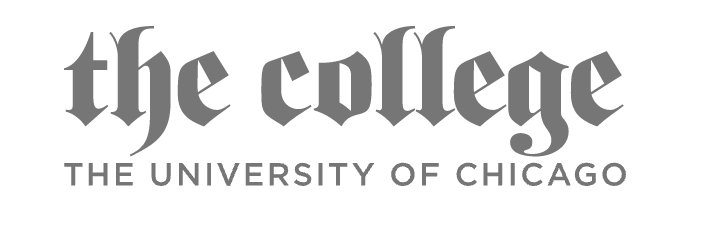SISRM Workshops
Workshop Dates Summer 2026: June 15 – July 17
The Practice of Social Science Research Workshop provides students with supplemental professional skills development for students to use in and outside of the academy. Workshops include talks from UChicago faculty about their early-stage research projects, hands-on projects in academic writing, research, and research programs, and field visits to view research in practice within the Chicago area.
Workshops are open to all participants of the Summer Institute. Workshops are mandatory for students who are participating in the SISRM RA program.
I learned that interacting with the community of study helps significantly in social science research. Understanding your subjects can uncover meaning behind your findings
These images show SISRM fellows in the Summer 2025 workshop series. Images detail faculty chalk talks and excursions to the Art Institute of Chicago, The American Century in Hyde Park tour, SISRM welcome picnic, and the Pullman Historic Neighborhood tour.
2025 Workshops
The following workshop descriptions from Summer 2025 reflect the general content of workshop programming.
Faculty Chalk Talks
Faculty chalk talks feature social scientists from throughout the University. In these talks, faculty discuss what social sciences research looks like in their research.
-
Eman Abdelhadi, Assistant Professor in the Comparative Human Development Department; Director of Graduate Studies
-
Paul Poast, SISRM Director and Associate Professor, Political Science; Deputy Dean for Doctoral Education
-
Kilian Huber, Associate Professor of Economics, Booth School of Business
-
Burcu Pinar Alakoc, Associate Instructional Professor, Committee on International Relations
-
Alex Hofmann, Assistant Instructional Professor, History
Exploring the Social Sciences
These workshops provide perspectives of what it means to engage in social scientific research, and how that engagement looks at the University of Chicago.
- Panel: What Do We Mean by Social Science Research with Jean Clipperton, Associate Director of MACSS; Associate Senior Instructional Professor
Austin Carson, Associate Professor; Director, Committee on International Relations.
- Social Science for Humanity: We Can’t ‘Tech’ Our Way Out of It with Paul Poast, Associate Professor, Political Science and Director, Summer Institute in Social Research Methods. What is the value of social science research? Why bother majoring in social science? This workshop explored the importance of the concept economy in solving Big Problems.
- Research Ethics workshop with Jamie Gentry, Undergraduate Research Support Librarian and Lisa Chinn, Head of Research Data Services. This workshop walks students through processes and best practices to consider when conducting research with sensitive data/materials.
Library Skills and Research Tools
- Digital Scholarship and Your Research Identity with Elias Hubbard from the Center for Digital Scholarship Program Manager. This workshop discussed digital scholarship initiatives in the Library and emphasized the importance of an online presence as a researcher.
- Finding the Scholarly Conversation: building a literature review and mastering secondary source searches with Jamie Gentry, Undergraduate Research Support Librarian.
- Generative AI in the Academic Environment with Taylor Faires, Digital Scholarship Librarian. This workshop taught students how to navigate AI tools in an academic setting, as well as the limitations of relying heavily on AI to complete work.
- Spatial Data Workshop with Dylan Halpern, Data Science Institute. Dylan introduced students to mapping technologies to observe geospatial data, which they can later use in your own research projects.
Professional Skills
- Entrepreneurship Workshop 101 with Brittany Wisniewski, Senior Director, STEM Programs and Careers in Entrepreneurship, Career Advancement. This workshop was a primer on all things entrepreneurship! From ideation to raising capital, it covered the essential elements of building a business. Students also learned about the vast ecosystem of UChicago programs and resources available to help you launch a venture or gain experience working with startups.
- Ask, Scale, Apply: Research Questions with the CCRF. This workshop explored how to turn your question into actionable items, whether that be for thesis work, funding proposals, or fellowship applications.
- Graduate School 101 with Lindsey Weglarz, Social Sciences Division. This workshop introduced students to the topic of graduate school from the perspective of the SSD’s graduate admissions program: What graduate programs are out there? Why might you wish to go (or not)? How do you prepare to put your best application forward?
- Mapping Your Career Journey: Exploration and Application with Daniel Clark, Program Director of Careers in Behavioral Sciences. This workshop addresses the process of translating professional and extra-curricular experiences into cross-functional skills applicable to a variety of roles.
















